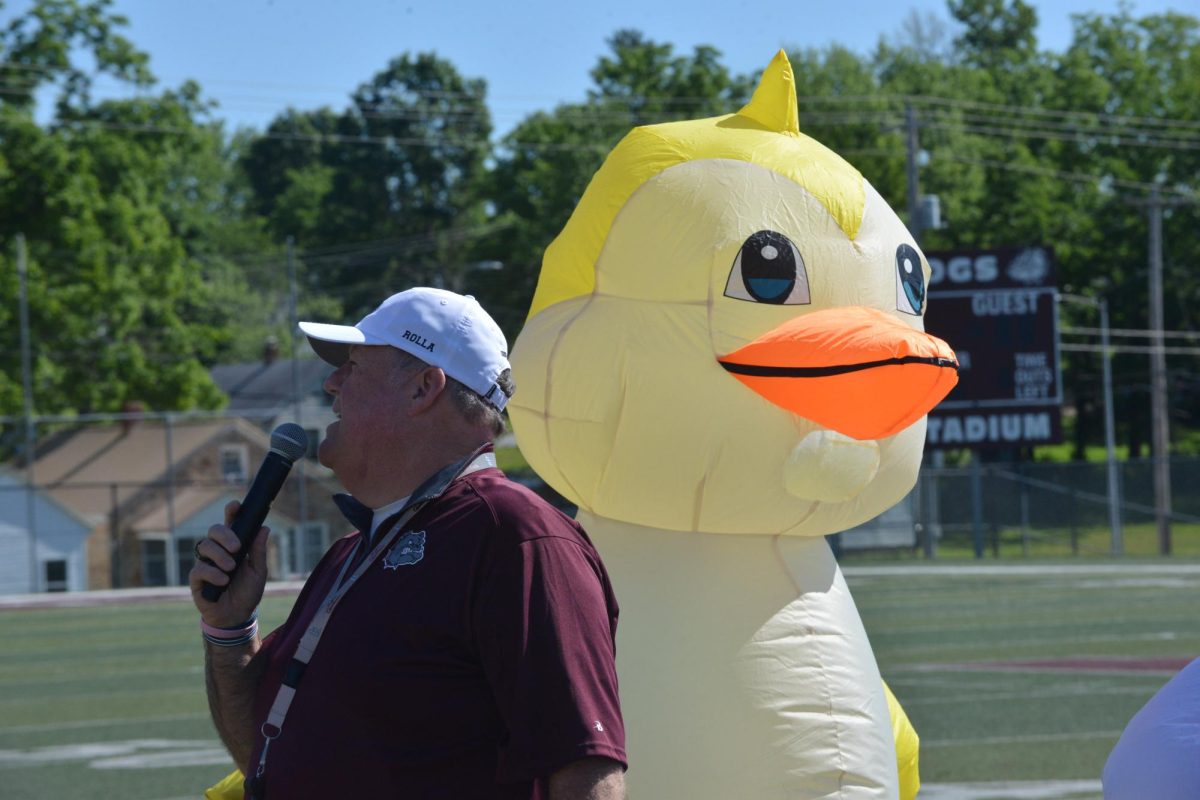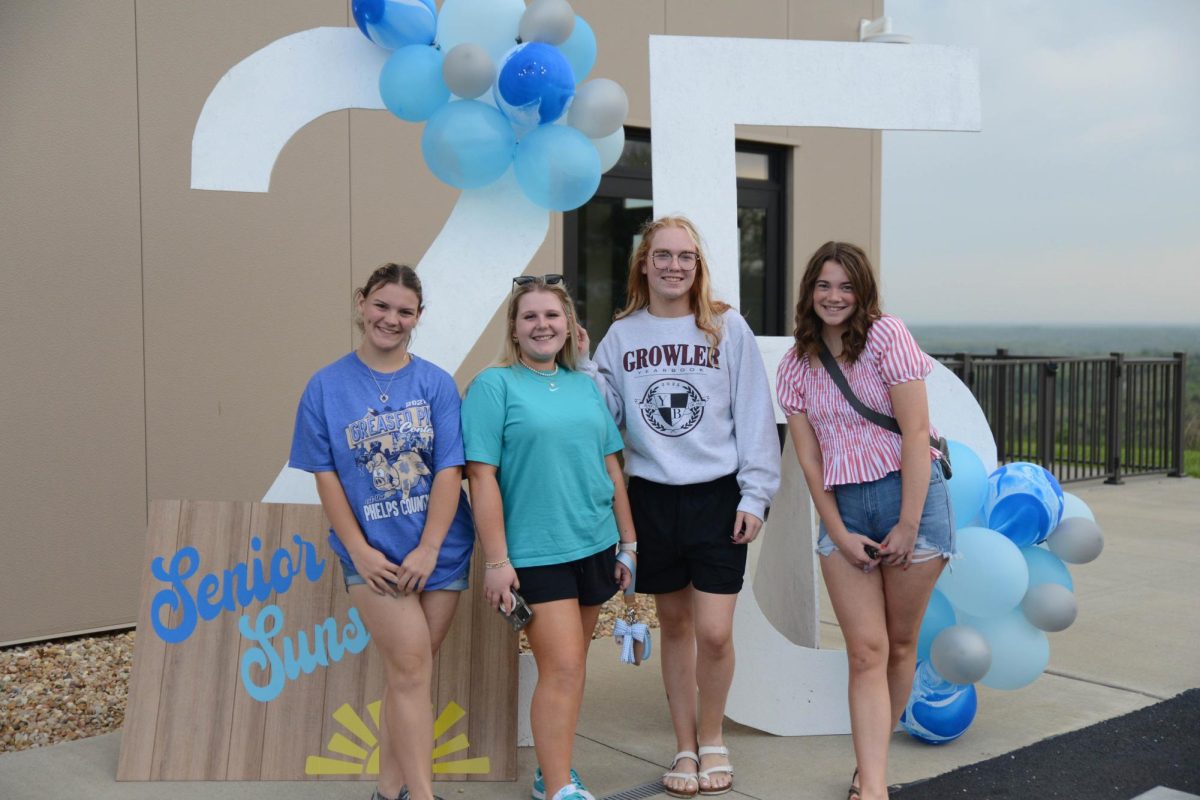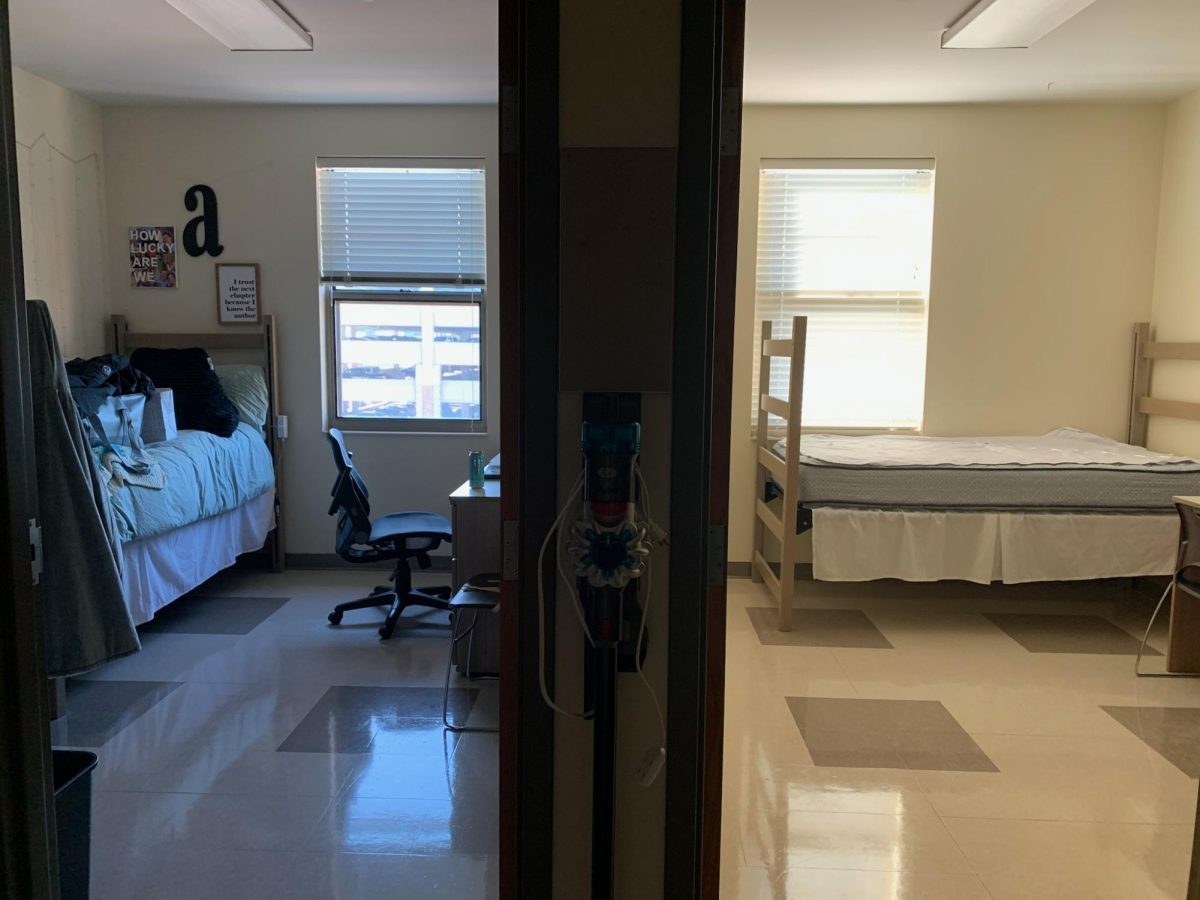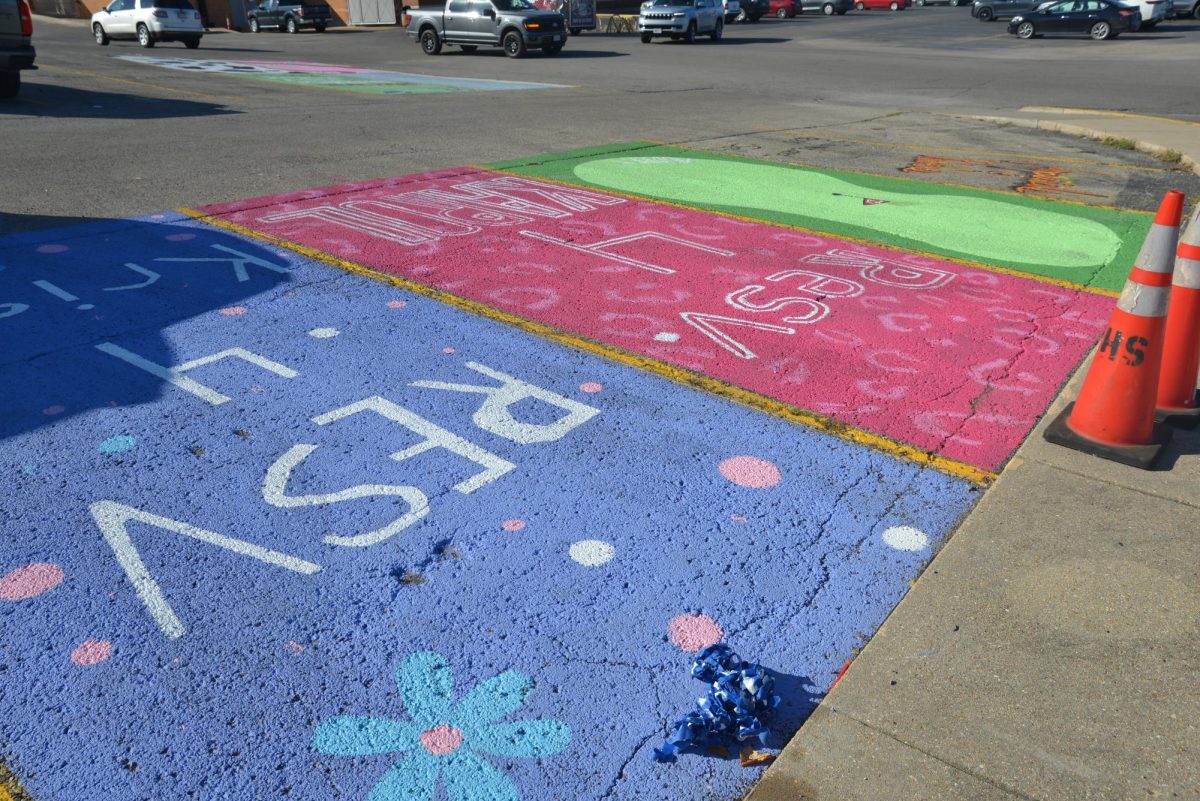Teachers have been using the new technology in their classes more throughout the school year. By now, teachers and students are getting more comfortable with the new technology.
“I use the iPads once every two weeks, the document camera three times a week, the Vernier equipment once a week, the computer lab once a week, and right now the genetics technology three times a week,” biology teacher Dwight Warnke said.
New techniques and activities are coming from using the new technology is class rooms.
“One thing I’ve recently I’ve done with the iPads is a QR review over minerals. So they used an iPad to scan the QR code and a website pulls up the mineral,” Warnke said.
Each of class uses the different technology for different things. Some classes focus on projects, some on assignments and then some on research.
“For cell biology they use it for looking up data and taking online quizzes. I assigned an assignment online but it didn’t let you write on the document and then submit it back to me. It grades the quizzes online simply. I found that with the iPad there are some drawbacks because it can’t use Adobe and the Flash, so internet sources are not as direct, but we can still use notebooks,” Warnke said.
Students seem to be warming up to the concept of integrating technology into everyday lessons and are enjoying the benefits it has on their learning experience.
“It allows students to come back and review on their own. The tutorials are great for students’ independence. It’s been great especially with earth science students. They are totally engaged and are becoming responsive and more interactive,” Warnke said.
In other classes, some students find all the new technology overbearing and sometimes very hectic.
“The cell biology students seem stressed by the amount of work they have to submit to My Big Campus, so I try to be selective about what I request on My Big Campus,” Warnke said.
Teachers are still constantly learning about new and different ways to use the technology.
“I think it’s finding how to integrate it effectively. The iPads don’t make it easier. Sometimes you have to reconstruct but with the notebooks it’s not a problem. You just have to explore what works and what doesn’t. iPads are good for some things but not all,” Warnke said.
Different teachers use the technology to help students on a more individual basis to suit what they need personally.
“[I have been] doing screen casts for every lecture as well as how to work out the problems on some of the problem sets. Students can always go to them to watch if they need help or if they’re absent. They can use the iPads for the flashcard option and one of the applications so they can practice the polyatomic ions, solubility rules, and that kind of thing. [They can do this] as well as listen to screen casts and look up information on the periodic tables,” chemistry teacher Karen Hammond said.
It’s been very helpful to students and is expected to continue improving how students learn in a daily basis.
“I have so many students saying that they are watching the screen casts, and it’s helping them figure out what they did wrong so that they can go at a slower pace if they need to. It gives students one more avenue to figure out how to use content or how to find another resource to help them look things up that they didn’t have before when they just had a textbook,” Hammond said.








